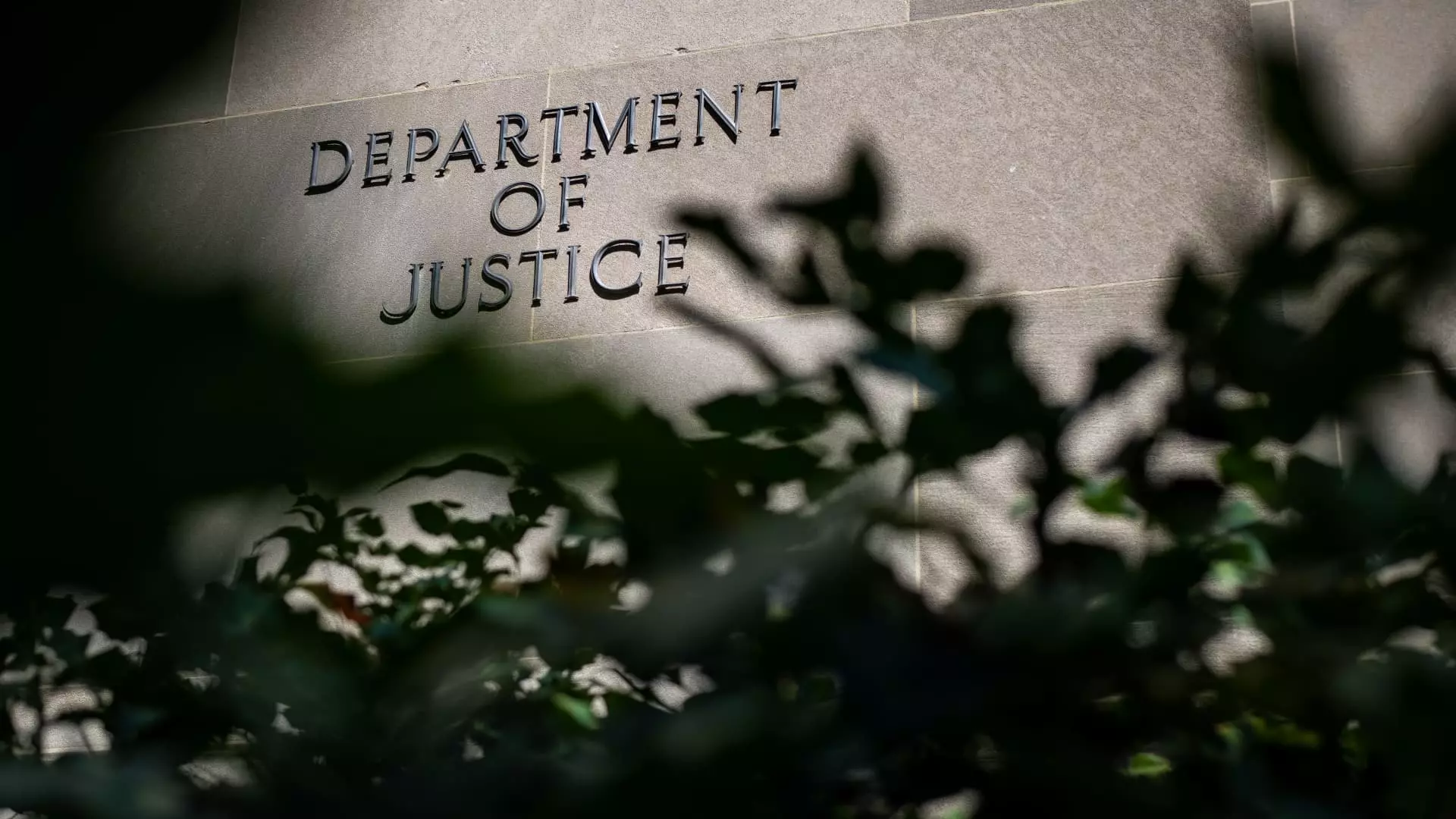The recent disbandment of the National Cryptocurrency Enforcement Team (NCET) by the U.S. Justice Department stands as a stark warning for the cryptocurrency world. This decision under Deputy Attorney General Todd Blanche symbolizes a radical departure from the previous administration’s hardline stance and reflects a larger political maneuver that could profoundly impact the future of digital assets. By adopting a decentralized approach, the government essentially deprives itself of a dedicated force to combat the misuse of cryptocurrencies, inviting both optimism from supporters of deregulation and unease from investors who understand the complexities of this volatile market.
The Decentralization Dilemma
The dismantling of the NCET signifies a considerable shift in strategy, now placing responsibility for prosecuting crypto-related crimes on various U.S. attorney’s offices rather than a centralized team dedicated to cryptocurrency enforcement. While decentralization might seem appealing—promoting local expertise—this shift risks diluting the intensity and consistency needed to address crimes that arise within the rapidly evolving digital asset landscape. Each attorney’s office may prioritize cases differently, leading to inconsistencies in enforcement and leaving significant gaps susceptible to exploitation.
Moreover, the decision to focus investigations narrowly on “terrorism and other serious crimes” raises questions about what constitutes a serious crime in the crypto space. By restricting the definition to offenses that use cryptocurrencies as tools for larger nefarious operations, the Justice Department inadvertently undermines strategies to combat fraud and consumer victimization that often lurk in the shadows. It is essential that a robust enforcement mechanism remains intact to ensure that the integrity of the cryptocurrency market is preserved, but this memo indicates a willingness to overlook less gaudy but equally damaging crimes.
The Political Motivation Behind the Policy Shift
The abrupt policy reversal cannot be isolated from the broader context of the Trump administration’s pro-crypto agenda as part of its 2024 campaign. Under the guise of promoting innovation, this deregulatory impulse serves the interests of political actors and corporations with vested interests, including Trump’s own financial entanglements with cryptocurrencies. Whether it’s launching a decentralized banking venture that promises financial autonomy while simultaneously benefiting Trump’s estate or capitalizing on meme coins, the financial stakes are evident.
This cronyism not only undermines the very spirit of the free market but also calls into question the integrity of governance at a time when public trust in institutions is diminishing. Are policy shifts being driven solely by a need to foster a dynamic economic environment, or is there an undercurrent of self-serving interests churning beneath the surface? When a political figure stands to gain from policy change while espousing principles of deregulation, short-term gains may overshadow the long-term regulatory overseers essential for a healthy marketplace.
Investor Vulnerability: A Recipe for Disaster
In a climate that showcases such blatant shifts aimed at minimizing regulatory scrutiny, the everyday investor carries the burden of heightened vulnerability. The DOJ’s memo prioritizes crimes that inflict direct harm but dismisses the potential for mismanagement and abuse in less visible scams. With the promise of vast rewards come immense risks, especially for the unsophisticated investor lacking a solid grasp of cryptocurrency dynamics.
The reality is that the digital asset ecosystem is rife with pitfalls ranging from pump-and-dump schemes to sophisticated hacking operations. Without an effective law enforcement element dedicated to monitoring these threats, participants in this market may fall prey to fraudulent practices, facing financial losses that could echo in broader economic repercussions. Instead of cultivating an environment characterized by vigorous prosecution of bad actors, the current administration’s approach cultivates an opportunistic atmosphere where unethical practices might flourish unchecked.
The Implications for Market Integrity and Future Regulation
The DOJ’s memo, which makes explicit its intention to cease litigation that introduces de facto regulatory measures, mirrors a broader trend that favors a more liberated economic landscape. Nonetheless, the lack of oversight raises legitimate concerns about market integrity.
When exchanges and other cryptocurrency service providers are offered a free pass regarding the actions of their customers, the potential for systemic abuse looms larger. Investors deserve to participate in a market characterized by ethical behavior and transparent operations. By sidelining enforcement mechanisms, the Justice Department is not just failing to protect investors, but it is also setting the stage for regulatory crises that could collapse trust in the cryptocurrency sector altogether.
The disbandment of the NCET should serve as a wake-up call. As the digital asset landscape continues to shift dramatically, the importance of an objective regulatory framework cannot be overstated. Without it, the U.S. risks losing its standing as a leader in technological innovation and responsible financial practices.

